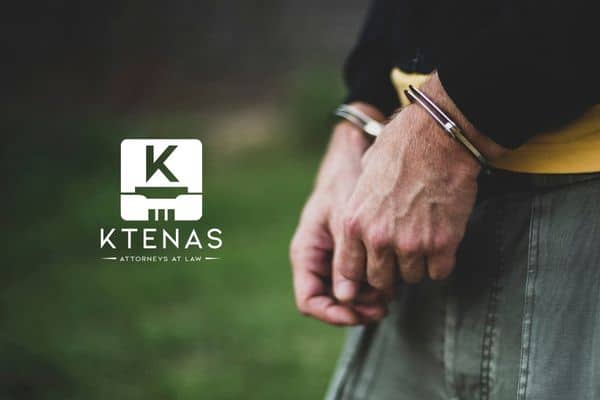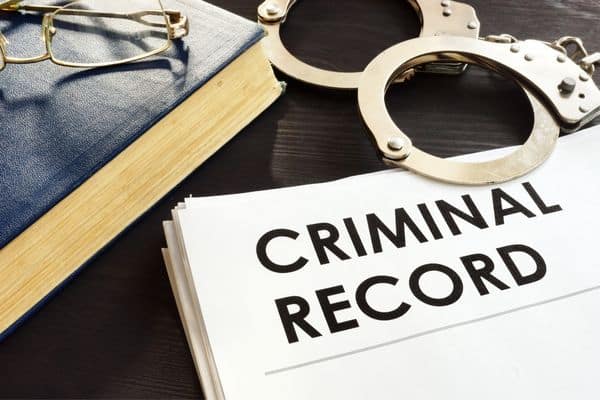Can You Legally Record Police Officers?
11/09/2025
Parole is one of the most important legal processes used to help former inmates transition into productive members of society. However, parole also comes with certain expectations and responsibilities that must be met in order for individuals to remain in good standing.
Unfortunately, sometimes these expectations are not met, resulting in a violation of parole requirements. Our experienced criminal defense attorneys in Chicago are here to help fight for you and your rights.

Call Ktenas Law today to speak to a member of our dedicated team at (312) 756-8652 and receive a free consultation!
According to the Bureau of Justice Statistics, around 3.9 million adults were under community supervision (including probation or parole) in the United States. As such, it is important to understand the consequences of parole violations in Illinois and what steps should be taken if you or someone you know has been accused of violating their parole.

Parole is a legal process in which an individual is released from prison before their sentence has been completed. The offender must agree to adhere to specific rules and conditions set by the parole board, such as avoiding criminal activity and reporting regularly to a probation officer. If all of these conditions are met, then the individual remains free. However, if these conditions are violated, the offender can be considered in violation of their parole and face consequences.
Parole violations are determined by a thorough review process involving both the parole board and criminal justice officials. The review includes a review of the individual’s past behavior, current activities, and any evidence or testimony that supports or refutes the violation. If a violation is deemed to have occurred, then the individual will be notified and given an opportunity to address the charges at a hearing.
At the time of sentencing, a probation term or hours of community service may be chosen as an alternative to the maximum term, providing an opportunity for criminal justice reform and giving reasonable doubt to the individual. This is usually the case when the violation is considered minor or nonviolent. However, if the violation is serious enough, or if there have been multiple violations, then the individual may face harsher punishments.
It is important to understand the differences between probation and parole in Illinois. Probation is a court-ordered punishment for an individual who has been convicted of a crime. The offender is released from custody and placed on supervised probation, with conditions that must be followed or risk being sent back to prison.
FAQ: How much will a criminal defense attorney cost me in Chicago?
Parole, on the other hand, is an agreement between the state and the offender that allows for their release from prison before the end of their sentence. In order words, it is a form of criminal supervision and rehabilitation that allows individuals to transition back into society after serving a prison sentence.
In summary, while both probation and parole are forms of criminal supervision, the two differ in that the probation period is court-ordered while parole is a form of early release from prison.
Despite the differences between probation and parole, there are several similarities.
In both cases, the individual is subject to state-regulated conditions that must be met or risk repercussions. Furthermore, in Illinois, individuals placed on either form of criminal supervision can face consequences for violating these conditions. This includes the potential for a revoked parole or probation sentence, along with other penalties.
Conditions of probation and parole can also vary in terms of the time length and severity. For example, probation may involve a shorter period than parole, but it can still include stringent restrictions such as sobriety tests or community service. Ultimately, the conditions of parole and probation ultimately depend on the individual’s criminal history and the nature of the offense.

Also, both probation and parole involve regular check-ins with a supervising officer or the parole board. Finally, in the state of Illinois, individuals are subject to an indeterminate sentence for parole or probation violation. This means that the length of their new sentence is based on how much time has been served and other factors such as the severity of the violation.
In Illinois, there are several types of parole violations that can result in severe consequences Some common examples include:
Usually, parolees are required to check in regularly with a parole supervision officer. The reason for this is to ensure that parolees are adhering to the terms of their conditional release and not engaging in any illegal activities. If a parolee fails to report to their assigned officer, then this can result in a parole violation.
Parolees are expected to abstain from criminal activity and any violation of this rule can result in a parole violation. This is especially necessary for individuals on parole for serious offenses such as drug possession, theft, or violent crimes. In other words, any activity that could potentially put the public at risk or break the law is considered a violation of parole.
In addition to refraining from criminal activity, parolees must also abide by other conditions of their parole. These can include obtaining employment, attending rehabilitation programs, enrolling in educational courses, and more. If any of these conditions are violated, then this can result in a parole violation.
More often than not, parolees are not allowed to leave the state without permission. This is simply because of the possibility or temptation of engaging in criminal offenses outside of the state they are being supervised in. If a parolee is found to have left the state without permission, then this can be considered a violation of their parole.
Parolees are strictly forbidden from possessing any weapons or illegal drugs. This is due to the potential risks associated with such items and the probability of re-offending. If a parolee is found to possess either of these items, then this can be considered a violation of their parole.
Lastly, parolees are expected to pay any fines or restitution that were imposed as part of their original sentence. Fines or restitution is typical for individuals who have been charged with a crime, and failure to pay can result in a parole violation.
After a parole violation has been issued, the individual will be given an opportunity to attend an initial hearing where they can address any evidence that suggests they did not violate their parole agreement. This is generally called a “probation violation hearing”. If the violation is found to be valid, then the individual may face the consequences such as revocation or extension of their parole. Depending on the circumstances, they may also have their sentence extended or be required to complete additional terms of parole.

It’s important to remember that all decisions regarding a parole violation are ultimately up to the parole board. Therefore, it’s important to seek legal advice if you or someone you know is facing a parole violation – whether around Rolling Meadows in Cook County or elsewhere in Illinois. A criminal defense attorney can help ensure your rights are protected and provide guidance on how best to navigate the process – including a probation violation hearing.
The consequences for violating parole can be severe and depend on the severity of the violation and any past offenses. In Illinois, possible penalties may include:
Learn More: 5 Things Your Criminal Defense Attorney Should Be Doing For You
People who violate their parole may also be subject to extended jail sentences, stricter law enforcement supervision, and regular drug tests as a part of their sentencing option within a period of time as may be determined by the parole board.
If you or someone you know is facing probation violation charges, it’s essential to seek legal advice. An experienced defense attorney can help ensure your rights are protected and provide guidance on how best to navigate the process. Depending on the circumstances, potential defense strategies may include:
Understandably, the process of navigating parole violations can be overwhelming. It is important to be aware of the consequences of violating parole and to seek legal advice if you or someone you know is facing charges. If all else fails, remember that parole violations can ultimately be appealed and a second chance at freedom may still be possible.
At Ktenas Law, we are committed to helping individuals with the best criminal defense possible. We thrive on finding creative solutions to difficult legal problems and will work tirelessly to ensure your rights are protected. Call us at (312) 756-8652 for a no-cost consultation and we will do our best to help you through this process.

